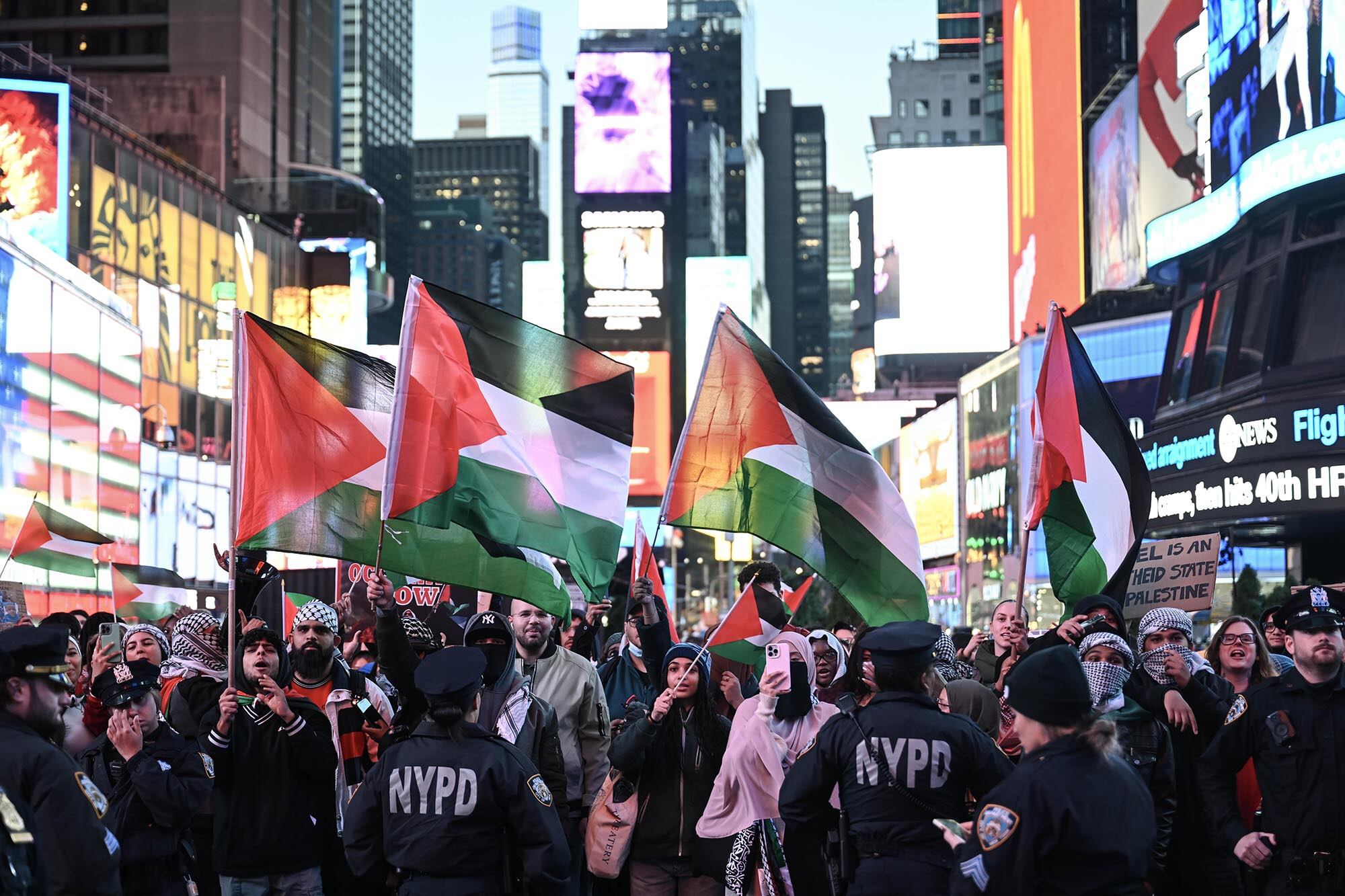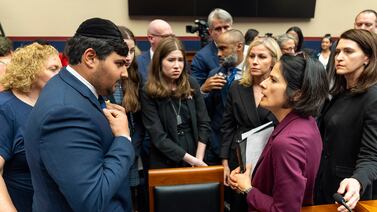In advance of a planned student and staff walkout at some New York City schools Thursday to call for a ceasefire in Gaza, schools Chancellor David Banks warned teachers about violating Education Department rules on political speech.
In an email to school staff Wednesday, Banks urged educators to keep their personal political beliefs out of the classroom — and warned that even out-of-school political activity can violate city rules if it “disrupts … the school environment.”
“When speech and action — even on one’s personal time — undermines the mission or core functions of NYCPS, we will review and take appropriate action on a case-by-case basis,” he wrote.
The warning comes a day before some city students and staff plan to walk out of school to call for an end to Israel’s ongoing bombardment of Gaza in response to Hamas’s Oct. 7 attacks.
A flyer for the event advertised “100+ high schools and school communities” organizers say are planning to walk out and join an afternoon rally in Bryant Park. Organizers of the event, including left-leaning teacher groups, parent organizations, and youth activist groups, also asked participants to call congressional representatives and encouraged parent groups to draft resolutions calling for a ceasefire.
Debates over political speech for students and staff have flared at educational institutions across the country in the month since the Hamas attack that killed an estimated 1,400 Israelis, mostly civilians, and took another 200 hostage. The subsequent Israeli bombardment and invasion of Gaza has killed an estimated 10,000 Palestinians, including thousands of children.
Tajh Sutton, a Brooklyn parent and president of Community Education Council 14, which is co-sponsoring the Thursday walkout, said its goal was to provide a “safe space to be in solidarity not only with Palestinian but Arab and Muslim families and young people.”
Sutton said she thought it was “no coincidence” that the chancellor’s warning came the day before the walkout, and said she interpreted it as an attempt to discourage staff from participating.
An Education Department spokesperson said the email was “written not in response to any particular event” and was “not meant to discourage or encourage any particular staff members.”
“We believe our staff will appreciate having clarity about how to balance their personal views and professional responsibilities,” the spokesperson added.
Donna Lieberman, the executive director of the New York Civil Liberties Union, said the chancellor’s letter is “inside the bounds of the law” but will “likely have the effect of stifling political discussion both inside the classroom and in the broader community.”
“The Department of Education should spend more time giving teachers the tools to support robust political debate, navigate students’ high emotions, and address serious issues — and less time monitoring their social media accounts,” she added.
Banks weighed in on Oct. 10 to condemn the “horrific acts of violence” committed by Hamas and provided a list of resources for educators to discuss the situation with students.
In an Oct. 26 joint statement with Mayor Eric Adams, Banks decried the “insensitive and threatening language” in “many of the images and videos we’ve seen at educational institutions across our city and this nation over the last few weeks.” Adams and Banks didn’t cite specific incidents, but several city students and educators have come under fire for inflammatory language in social media posts and protests.
Parent organizations have also entered the fray. Some Community Education Councils have passed resolutions condemning the Hamas attacks and expressing support for Israel. Sutton, the CEC 14 president, said her council is introducing a resolution calling for a ceasefire.
The Education Department regulation governing political speech says “school buildings are not public forums for purposes of community or political expression” and prohibits teachers from using school time or resources to advocate for specific candidates, political parties, or “political organizations.”
This isn’t the first time the regulation has come up in relation to the Israeli-Palestinian conflict. In 2019, the group Palestine Legal challenged the Education Department’s use of the regulation to justify a principal asking a teacher to remove a shirt supporting the Boycott, Divestment, Sanctions movement, which seeks to cut off economic support for Israel.
There’s legal precedent for school administrators to mete out discipline for out-of-school activities that disrupt the school environment. Department officials recently backed a Queens principal’s threat to discipline students for following certain Instagram accounts that he said contributed to cyberbullying.








